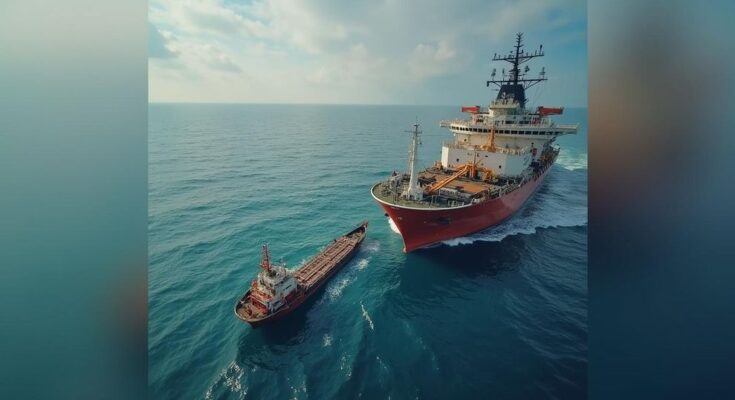Cagayan de Oro Rep. Rufus Rodriguez has condemned Russia for blocking an ASEAN statement aimed at reinforcing the group’s stance on the South China Sea disputes. He asserts that Russia’s interference reflects its self-interest, linked to China’s backing amidst its military operations in Ukraine. Tensions have escalated in the region, prompting Philippine officials to call out aggressive Chinese actions while seeking diplomatic solutions through ASEAN.
In a recent statement, Cagayan de Oro 2nd District Representative Rufus Rodriguez criticized Russia for obstructing a draft statement from the Association of Southeast Asian Nations (ASEAN) which aimed to establish a firmer stance on the South China Sea disputes. He emphasized that Russia ought not to interfere in regional matters, asserting that its actions were driven by self-interest linked to its military operations in Ukraine, particularly in gratitude for China’s support. Rodriguez pointed out that this interference compromises the autonomy of ASEAN and its member states in addressing pressing geopolitical issues. The controversy arose from reports indicating that both Russia and China had blocked a consensus statement regarding the South China Sea prepared by ASEAN member states. According to a U.S. official, the disagreement centered around how the statement would reflect the United Nations Convention on the Law of the Sea (UNCLOS). Although nations such as the United States, Japan, Australia, South Korea, and India expressed their support for the draft, the proposal failed due to the objections raised by Russia and China. Russian Foreign Minister Sergei Lavrov conveyed that the final declaration was not adopted because of ongoing attempts by the aforementioned countries to politicize the issue. Heightened tensions in the South China Sea have prompted strong denunciations from Philippine officials against Chinese actions perceived as aggressive, particularly incidents involving Chinese military aircraft and maritime vessels infringing upon the Philippines’ exclusive economic zone. During an ASEAN summit, President Ferdinand “Bongbong” Marcos Jr. directly confronted Chinese Premier Li Qiang, asserting that economic collaboration cannot be effectively pursued in the presence of unresolved political conflict. This illustrates the complex interplay between diplomacy, regional security, and the strategic interests of various states within the Asia-Pacific realm. As tensions continue to evolve, the Philippine government’s engagement with ASEAN and its dialogue with China underscore the importance of maintaining sovereignty while seeking collaborative solutions to regional disputes.
The South China Sea is a strategically critical area, rich in resources and critical trade routes, which has become a focal point for geopolitical tensions, particularly between China and several Southeast Asian nations, including the Philippines. The involvement of external powers like the United States and Russia further complicates the situation, as national interests often clash over issues of territorial integrity and freedom of navigation. The ASEAN is an essential platform for dialogue and collaboration among Southeast Asian nations, particularly regarding regional security concerns and the management of maritime disputes. The tensions in the region have been exacerbated by China’s assertive maritime actions, prompting nations to seek firmer collective stances while navigating complex international relations.
In summary, the blocking of the ASEAN statement by Russia and China reflects broader geopolitical rivalries impacting regional stability in the South China Sea. Representative Rufus Rodriguez’s concerns highlight the need for ASEAN to maintain its autonomy in addressing disputes without external interference, particularly from powers with vested interests such as Russia. The ongoing tensions in the region necessitate vigilant diplomacy and assertive defense of national interests by Southeast Asian nations, particularly the Philippines, as they strive for peace and stability in a contested geopolitical landscape.
Original Source: www.inquirer.net




